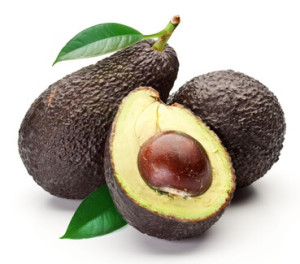The Philippines on November 17, 2024 became the first Asian nation to gain approval to export hass avocados to Japan.
The fruit-rich Mindanao island has already relayed the first shipment worth 2.4 million pesos ($40,896), kicking off the exports.
“This is a testament,” partially reads the acknowledgment of the Department of Agriculture (DA), in praise of the remarkable agricultural export expansion.
Strategic to the breakthrough included the fruit quality certification efforts by the Bureau of Plant Industry and the foreign agricultural attaché.
The deal is significant because it climaxes a 10-year trade diplomacy that has sought to win Japan’s lucrative avocado market.
This way it rivals the September 2023 South Korea-Philippines avocado export deal that only materialized after a 15-year wait.
Hass avocados now join two other tropical fruit that include pineapples and bananas already under export to Tokyo.
Notably, the Philippines has seen its agricultural and fisheries products to Japan hit $1.1 billion, as of 2023.
The value could magnify owing to the possible high value returns of the small, pebbly hass variety. For one, the variety’s popularity in Japan has created a lucrative market there worth $160 million per annum.
Tokyo imported around 61,000 tonnes of hass avocados in 2023, from mostly the Americas and Oceania.
Hass Avocados and Other Varieties
“Abokado,” the provincial term for avocado in the Philippines, is a relatively new fruit here for its earliest cultivation was around 1890.
Since 1903, however, over 8 branded cultivars such as Cardinal and Cepillo Green have emerged, alongside other commercial strains.
Hass traces its development to 1935 when Rudolph Hass patented it in California before it reached other countries including PH.
Ultimately, the Philippines is bound to benefit from high demand for hass avocados from its rich neighbor. Indeed, it is demand in wealthy nations like Japan that are creating value for the variety, whose global market value could reach $18 billion by 2025.
The Philippines Avocado Statistics
The Philippines is an emerging grower and shipper of avocados in Asia, fronting high quality green or dark-skinned commercial varieties. According to FAOSTAT, the Philippines harvested 19,874 tonnes of the fruit in 2021, a value that improved to 20,076 tonnes in 2022. The country ranked 31st in worldwide production in 2022, the 6th highest in Asia behind Türkiye, China, Israel, Vietnam and Indonesia.
How high is acreage and yield of avocados in PH?
The acreage has slightly improved in tandem with production, from 5,267 to 5,275 hectares in 2021 and 2022, respectively. On the other hand, production yield in the Philippines at 38,060 g/Ha in 2022 is relatively low. This is especially so in comparison with that of world-beating El Salvador at 477,384 g/Ha, as of 2022.
Which are the leading avocado production areas?
FAO data shows that Cagayan Valley in the region of Luzon led production at 18,455 tonnes in 1997. This was almost half of the total national production in 1997 at 45,884 tonnes. The second biggest producing region is Central Visayas in the heart of the country with 11,899 tonnes while Mindanao Island’s regions follow.
